They have adapted the modern world things and blended it beautifully with their ancient traditions and customs, maintaining a perfect balance. Worthy of the title of 'Land of Happiness', for the happiest people on the planet live here. Also known as the 'Land of the Thunder Dragon', this happy little region offers a long list of tourist activities. Be it culturally, geographically, laid back travel, adventure travel or food, nightlife, shopping it attracts tourists from all over the world.
Important Information Before You Plan Your Bhutan Trip
Visa Policy for Indians and Other TouristsTravel by Land
No Visa required by the citizens of India. All you have to do is to obtain a permit at the port of entry on producing a valid passport with a minimum of 6 months validity or Indian nationals may also use their Voters Identity Card (VIC). All other tourists must obtain a visa clearance in advance for travelling in Bhutan.- However, there have been recent changes regarding the Sustainable Development Fee for Indians. Do keep a lookout and plan accordingly.
You can enter Bhutan through Phuentsholing, Gelephu and Samdrup Jongkhar as they are the only land border areas open to tourists.
Travel by Air
There are flights to destinations including Bangkok, Delhi, Kolkata, Bagdogra, Bodh Gaya, Dhaka, Kathmandu, Guwahati, Singapore and Mumbai.
You choose any of the options to enter Bhutan; we’ve got you covered by creating seven days itineraries for both these modes of transport.
Places To Be Covered
Phuentsholing, Thimphu, Punakha, Wangduephodrang, Paro, Haa Valley
Enter By Road
Day 1 - Phuentsholing
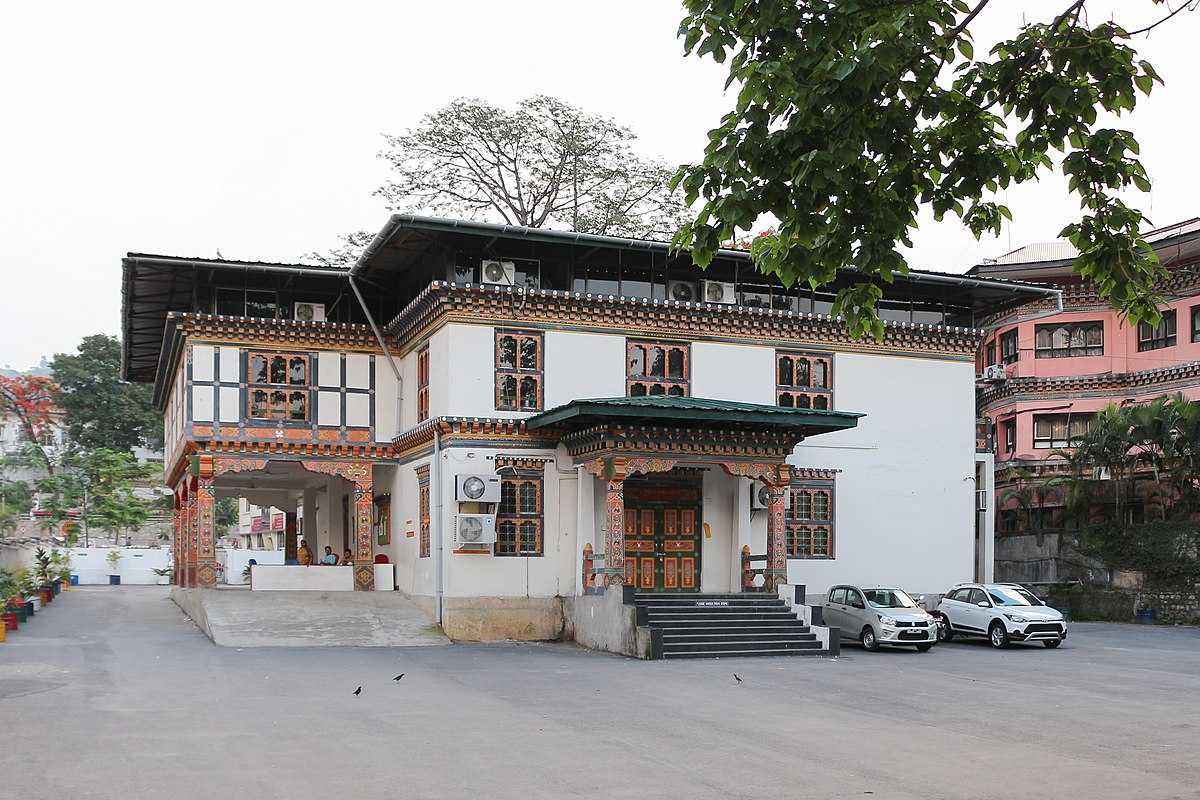
Places to Visit in Phuentsholing
1. Bhutan Gate

Entry Fee: No entry fee
Timings: 9 AM to 10 PM
2. Zangto Pelri Lhakhang

Zangto Pelri Lhakhang is a perfect place to start Phuentsholing sightseeing. The ambience composes of Buddhist monks chanting hymns as you walk into a replica of the Guru Rinpoche and eight other life-size idols of the Guru along with paintings illustrating Buddha's life.
Entry Fee: No Entry Fee
Timings: 8 AM to 6 PM
3. Karbandi Monastery

Entry Fee: No entry fee
Timings: 7 AM - 6 PM
4. Amo Chhu Crocodile Breeding Centre

Entry Fee:
Adults - BNT 100
Free for children below 10 years
Timings: 9 AM - 5 PM
Accommodation in Phuentsholing
1. Indra Nila Hotel - BTN 1,113Book This Hotel
2. Centennial Hotel 2008 - BTN 1,680
Book This Hotel
3. Hotel Thuenpa Puenzhi - BTN 1,396
Book This Hotel
Day 2
Thimphu
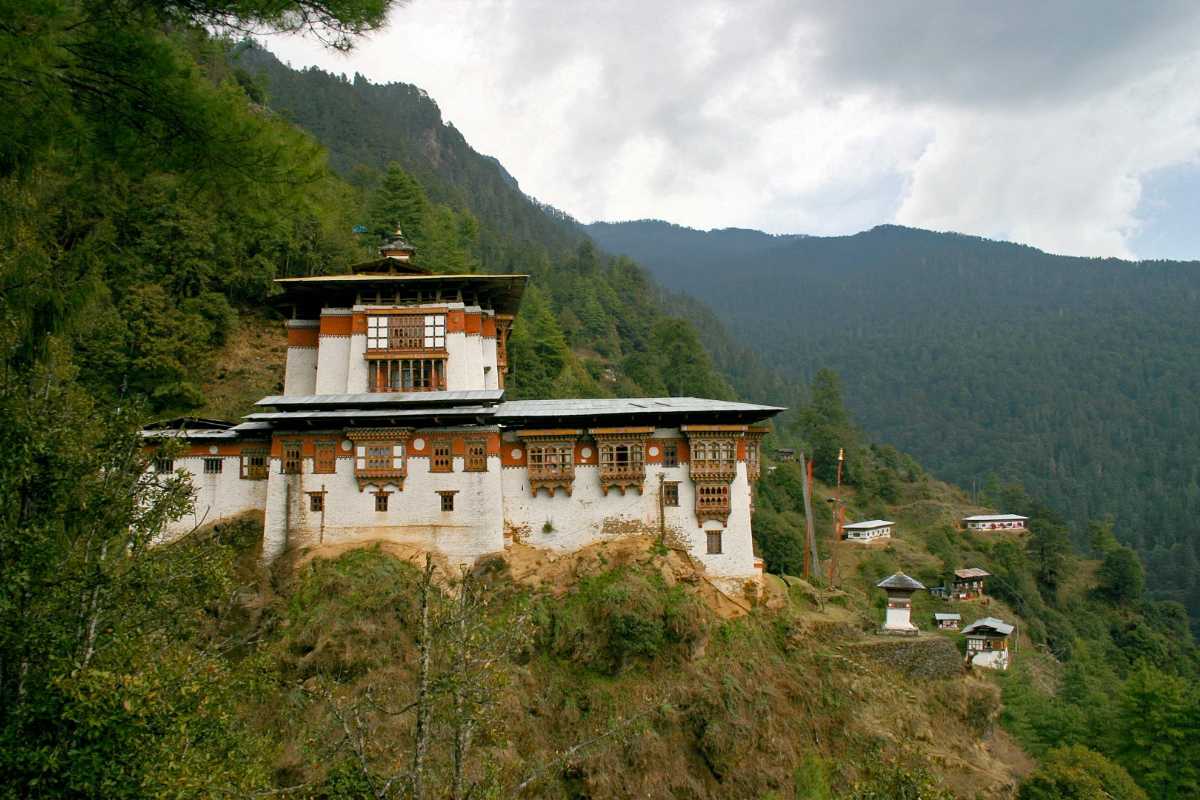
Phuentsholing to ThimphuBhutan's capital since 1961, Thimphu occupies the western interiors of the valley and witnesses various seasons across the year. Visit the most modernised place in Bhutan, while still staying close to tradition. The capital city hosts amazing cafes, eateries and pubs and the ultimate Bhutanese nightlife.
Mode Of Transport - Bus
Duration - 7 hrs
Cost - BTN 200
Route - Phuentsholing - Bhutan Post - Thimphu
Places to Visit
1. Buddha Dordenma

Entry Fee: No Entry Fee
Timings: 7 AM - 8 PM
2. Tashichho Dzong
Built in 1641, Tashichho Dzong is a fortress acting both as a monastery and central secretariat of the present government. Located on the western banks of the Wang Chu, the structure houses amazing, traditional architecture of Bhutan.Entry Fee:
Tourists - BTN 300
Students - BTN 150
Tariff payers and Children (below 5 years): No Entry Fee
Timings:
Monday - Friday: 9 AM to 5PM, 5:30 PM - 6 PM
Saturday, Sunday: 9 AM - 5 PM
3. Memorial Chorten

Entry Fee:
Foreigners (Except tariff payers): BTN 300
Students: BTN 150
Timings:
Summer:
Monday - Friday: 5:30 AM - 6:30 PM
Saturday - Sunday: 8 AM - 6 PM
Winter: 8 AM - 5 PM
4. Changangkha Lhakhang
Resting on a ridge above central Thimphu, this traditional Bhutanese temple is always busy with pilgrim activities. Established in the 12th century, the location was chosen by Lama Phajo Drugom Zhigpo. You will get to see a series of prayer wheels with huge Tibetan texts and murals. Young parents visit to get names for their newborn and blessings for their young children from the protector deity Tamdrin. Kids are given a holy thread and blessings are showered with the help of Phurba.Entry Fee: No Entry Fee
Timings: 9 AM - 6 PM
Things To Do
Shop at Thimphu Handicraft Market
Buy souvenirs and decor items from the market in your free time. Many vendors sell beautiful Bhutanese handicrafts, traditional jewellery, some clothing and an extensive range of decor items at the Bhutanese Crafts Bazaar. Things like prayer wheels, singing bowls, Kira, scarves, Thangkas, metal teapots, etc. are especially loved by tourists.Address: At the centre of Thimphu below Norzin Lam
Timings: 10 AM to 6 PM
Accommodation in Thimphu
1. Hotel Oro Villa - BTN 1,616Book This Villa
2. Bhutan Boutique Residency - BTN 1,810
Book This Residency
3. Thori Resort - BTN 1,867
Book This Resort
Day 3
Punakha
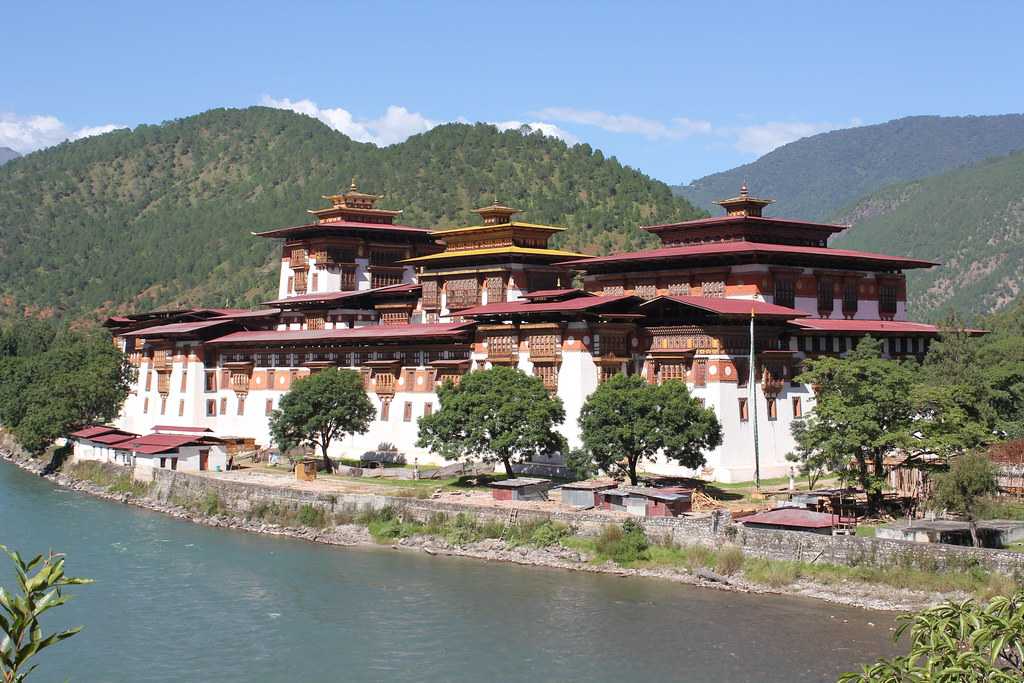
Thimphu to PunakhaBordered by Gasa, Wangdue Phodrang and Thimphu districts, Punakha is known for a 17th-century fortress at the juncture of the Pho and Mo Chhu rivers. The valley is blessed with fertility, thanks to two rivers - Po Chhu and Mo Chhu converging, making it highly favourable for rice cultivation.
Mode of Transport - Car
Duration - 2 Hours
Places to Visit in Punakha
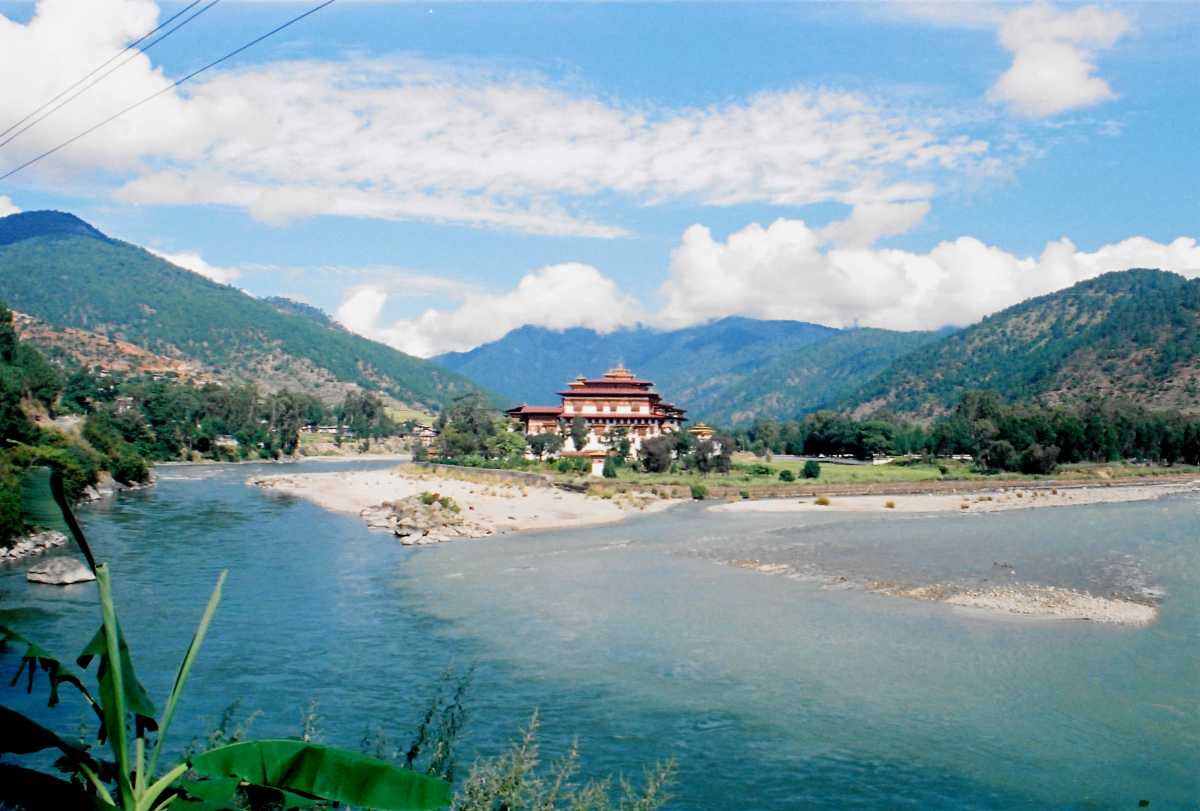
1. Punakha Dzong
Also known as Pungthang Dewa chhenbi Phodrang, Punakha Dzong is the second largest dzong in Bhutan. It is one of the majestic structures in the county and considered as the Bhutanese architectural wonder. Although first built in 1637 by Ngawang Namgyal, the structure holds sacred relics of the Kagyu school of Tibetan Buddhism and the sacred remains of Ngawang Namgyal, the Tibetan Buddhist lama and unifier of the country of Bhutan.Entry Fee: BTN 300
If you are a student, carry your student's ID card to avail 50% discount.
Timings:
March - September: 8:30 AM - 5 PM
October - February: 11 AM - 5 PM
2. Mo Chhu
River Mo Chhu reaches Punakha after flowing through the Gasa Dzongkhag district near Tibet and Bhutan border. In Punakha, you will witness 'Puna Tsang Chhu', the confluence of Po Chu and Mo Chhu right next to Punakha Dzong and it is a sight to behold.Entry Fee: No Entry Fee
Timings: All Day
3. Punakha Suspension Bridge
Connecting Punakha Dzongkhag to the rest of the valley, Punakha Suspension Bridge is the 2nd oldest suspension bridge in Bhutan. Built over the rivers Mo Chhu and Po Chhu, the total length of this bridge is 160-180 meters. Wrapped with beautiful prayer flags, you should visit this bridge for amazing views of the valley.Entry Fee: No Entry Fee
Timings: All Day
4. Dochula Pass
Dochula Pass is a beautiful mountain pass in the snow-covered Himalayas in Bhutan that lies on the road from Thimphu to Punakha. At the pass, 108 memorial chortens or stupas known as "Druk Wangyal Chortens" have been built in the memory of the fallen soldiers by Ashi Dorji Wangmo Wangchuk, the eldest Queen Mother.Activities in Punakha
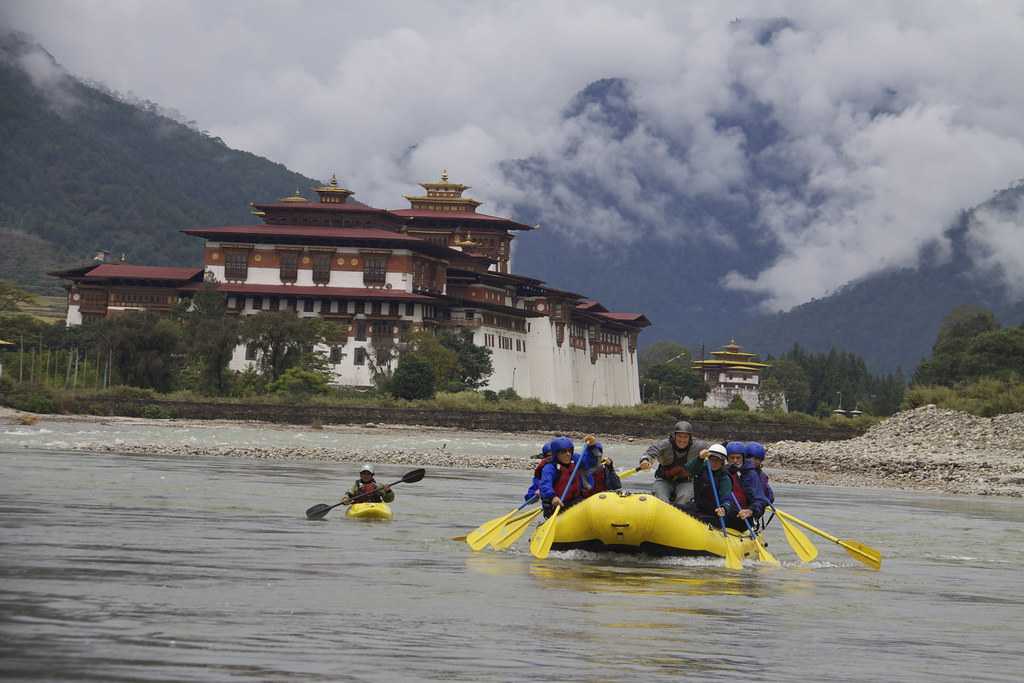
Accommodation in Punakha
1. Yak Herder’s Boutique Inn - BTN 1,616Book This Inn
2. Mendrelgang Homestay - BTN 2,011
Book This Homestay
3. Damchen Resort - BTN 3,513
Book This Resort
Day 4
Wangdue Phodrang
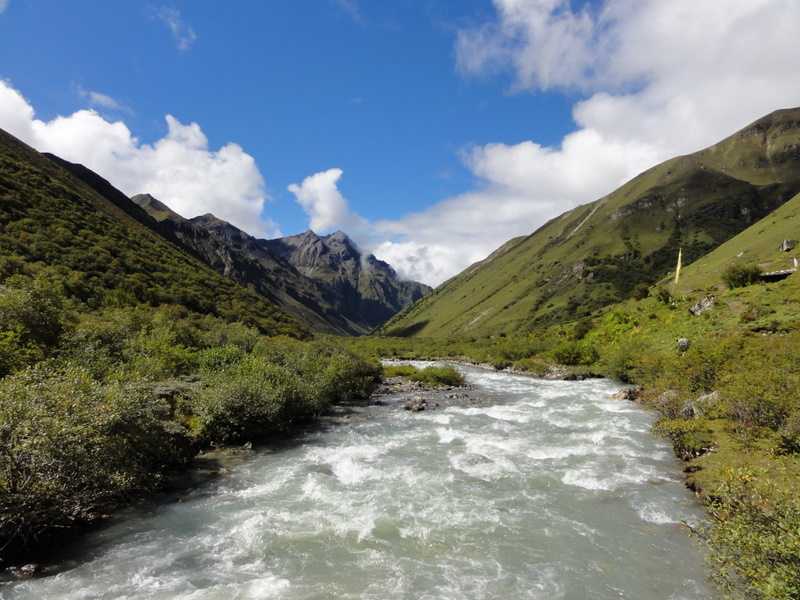
Punakha to Wangdue Phodrang
Mode of Transport - Car
Duration - 1 Hour
1. Jigme Singye Wangchuck National Park

Entry Fee: BTN 150
Timings: All Day
2. Phobjikha Valley

Entry Fee: Free
Timings: All Day
3. The Temple of Sha Radap
The Temple of Sha Radap is worth paying a visit. Known also as Rada Lhakhang, it sits quite close to the Wangdue Phodrang Dzong. It is home to the guardian deity of Wangdue Phodrang.Entry Fee: Free
4. Gasleo and Nahee Village
A great place to break the monotony of sightseeing, Gasleo and Nahee villages are situated towards the western side of Wangdue Phodrang District. This region is the ideal pick for day picnics and to experience the Bhutanese rural way of life.Entry Fee: Free
Timings: All Day
Accommodation in Wangdue Phodrang
1. Pema Karpo - BTN 3597Book This Lodge
2. Himalayan Dragon's Nest Hotel - BTN 2,753
Book This Hotel
3. Punatsangchhu Cottages - BTN 3,232
Book This Cottage
Day 5
Paro
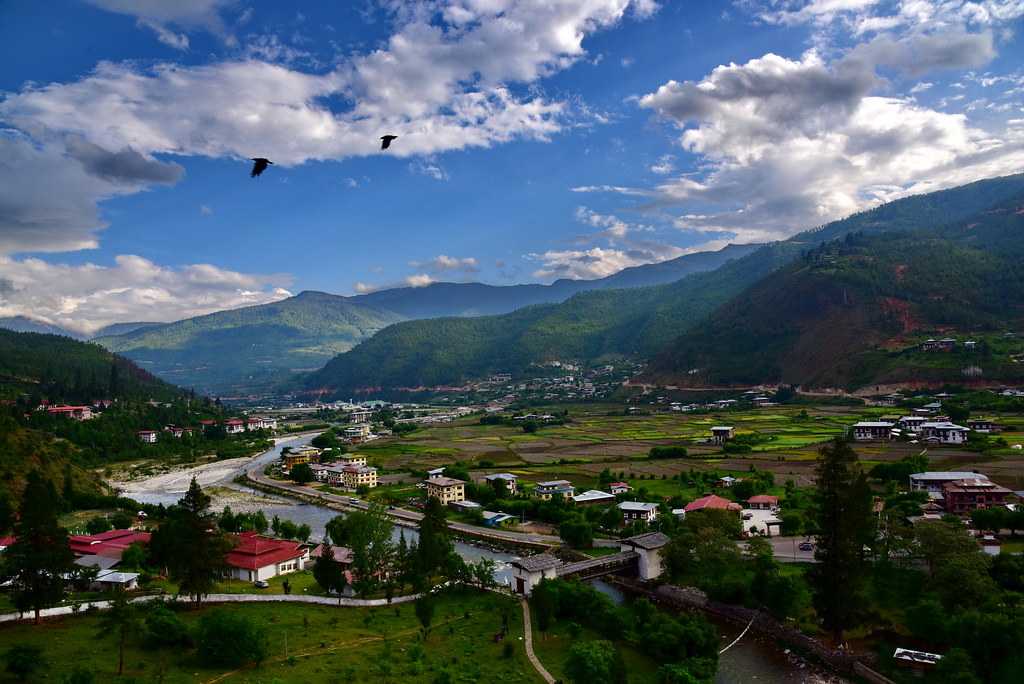
Wangdue Phodrang to ParoParo is a valley town in Bhutan, home to one of the most beautiful monasteries in the country. The Taktsang Palphug Monastery, also known as Tiger’s Nest, is located at the cliff above the forested Paro Valley. It also houses around 155 temples and monasteries built in the 14th century.
Mode of Transport - Car
Duration - 3 Hours
Places to Visit in Paro
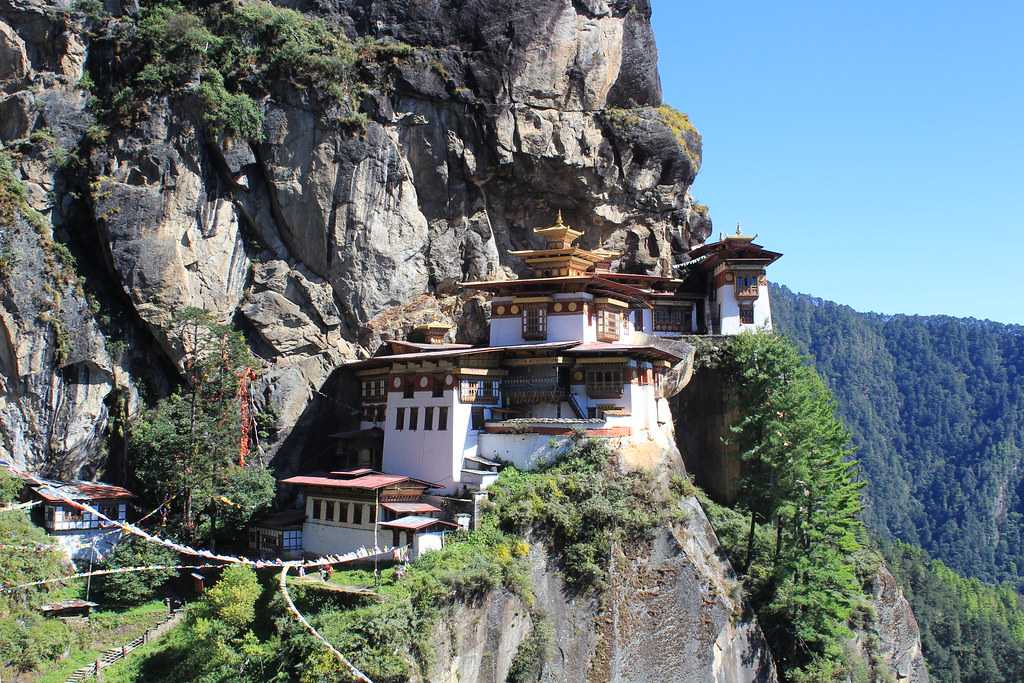
1. Tiger's Nest Monastery

Upon reaching Paro, the very first thing on your list should be visiting Tiger's Nest. An architectural marvel, this monastery is built on a cliff, over 3000 meters above the sea level. It is not just the top tourist attraction in Bhutan but also has a great religious significance. A trek leading up to the monastery offers terrific views of the valley and is super serene.
Entry Fee: BTN 500
Timings: 8 AM - 1 PM, 2 PM - 6 PM
2. Rinpung Dzong

Entry Fee: No Entry Fee
Timings: 9 AM - 5 PM
3. Chele La Pass

Entry Fee: No Entry Fee
Timings: All Day
4. National Museum of Bhutan
Showcasing the Bhutanese art and traditions, throughout the six floors of the building, the National Museum of Bhutan is a gem. You should visit here to know more about the history and the rich culture of the country.Entry Fee:
Bhutanese - BTN 10
SAARC Nationals - BTN 25
Non-SAARC Nationals - BTN 150
Monks, Nuns, Children (under 10) - No Entry Fee
Timings:
Summers: 9 AM - 5 PM
Winters: 9 AM - 4 PM
Things To Do
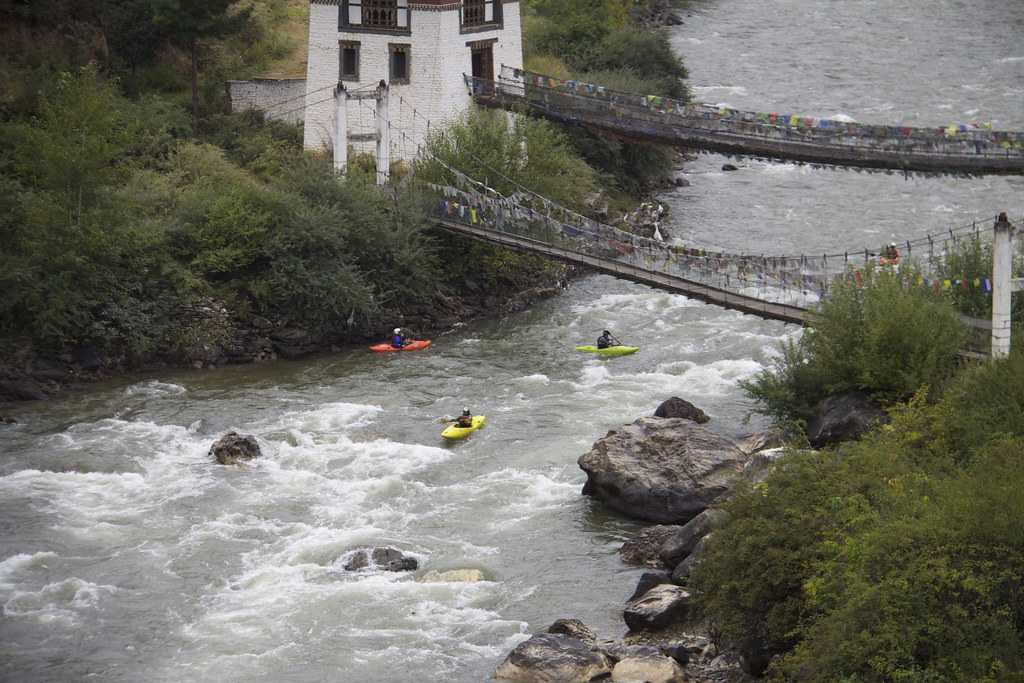
- Trek to Tiger’s Nest
- Shop at Paro Craft Market
- Meditate in the monastery
- Munch on Local Delicacies
- Mountain biking at The Jemina – Ta Dzong mountain biking trail
- River rafting & Kayaking in River Paro Chhu
Accommodation in Paro
1. ViewPoint Lodge - BTN 1,557Book This Lodge
2. Ama's Village Lodge - BTN 1,583
Book This Lodge
3. Nirvana Lodge & Homestay - BTN 2,252
Book This Lodge
Day 6
Haa Valley
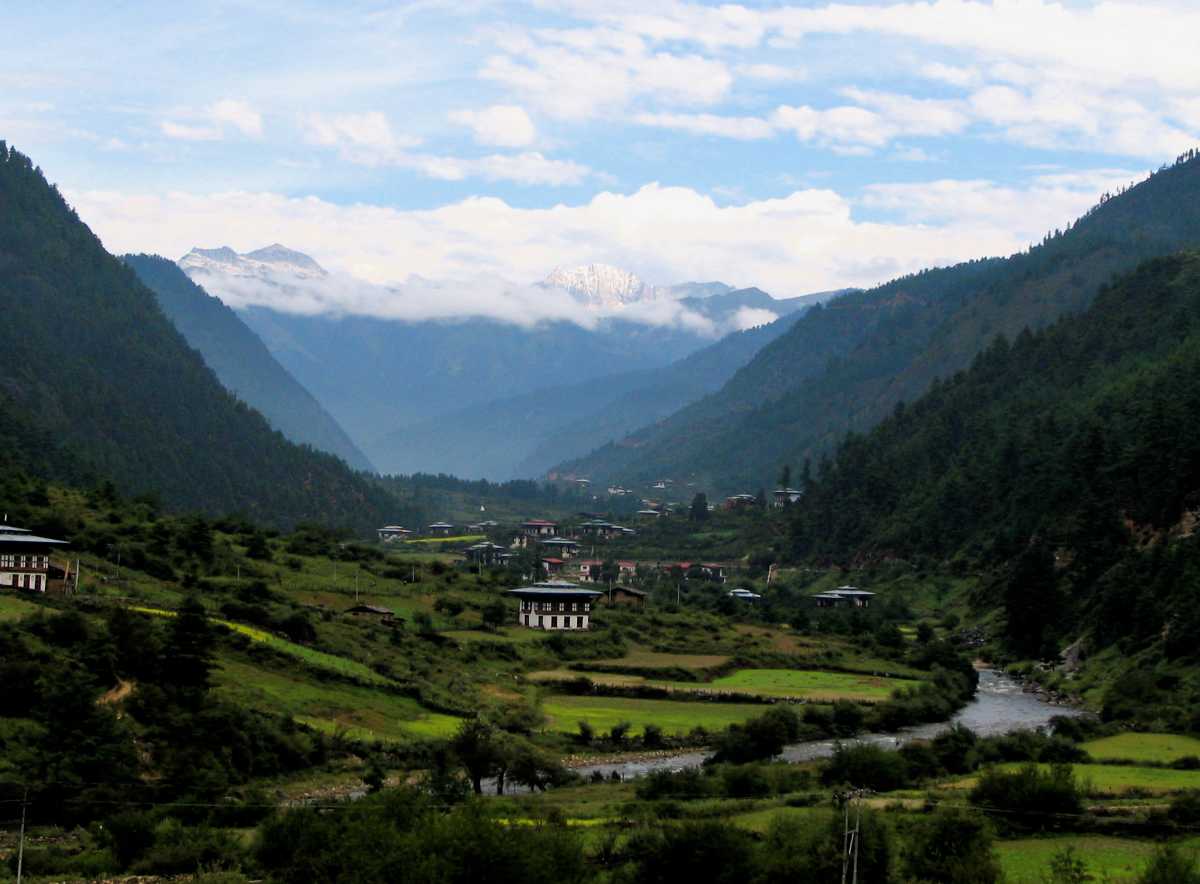
Best Time to Visit: October - November
Places to Visit in Haa Valley
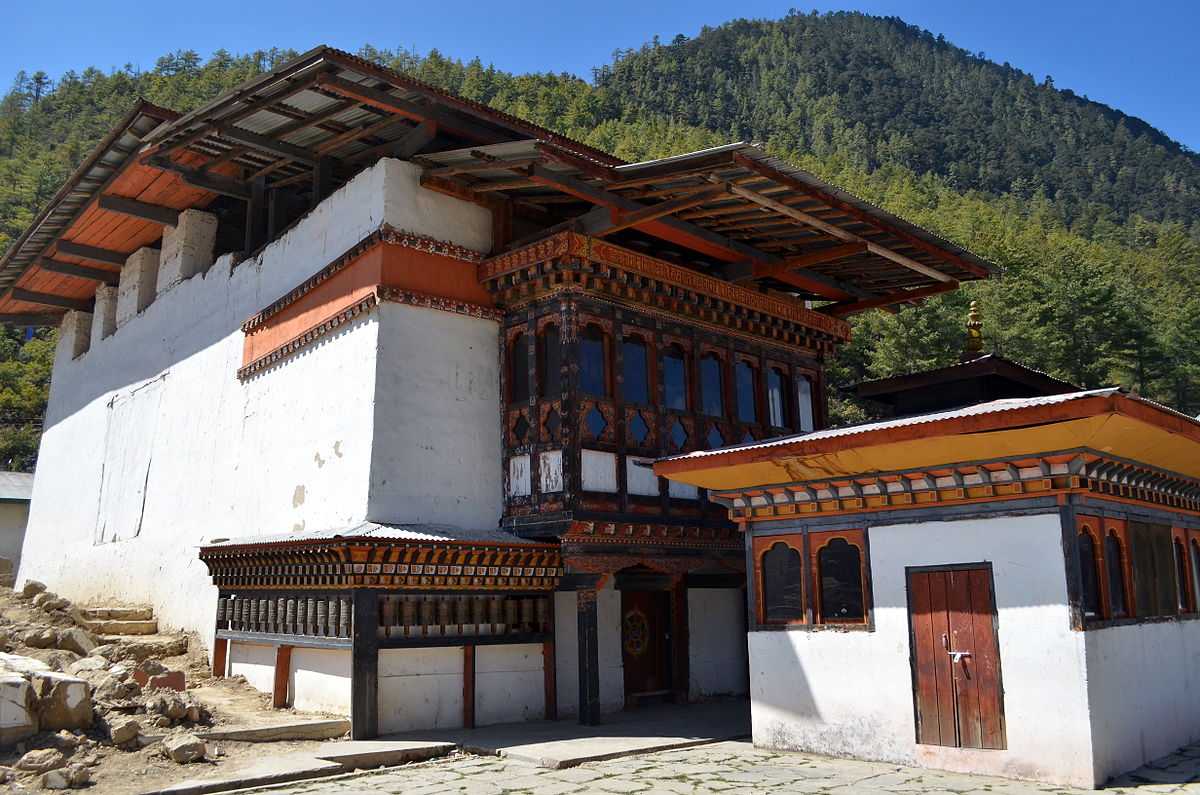
1. Lhakhang Karpo and Lhakhang Nagpo

Note: Tourists are expected to dress respectably and modestly while visiting temples and other religious institutions. Shoulders must also be covered inside religious establishments. Since shoes are to be removed before entering a religious building, it is advisable to wear socks.
2. Haa Goempa
Not very far from the Black and White temples, it is believed that the Buddha appeared in the form of a pigeon and lured local farmers to the spot with mystical sounds and visions of fires. Haa Goempa was then built on the exact spot!3. Haa Samarpudung
Linking Haa valley to Samarpudung valley, the bridge is believed to have magical powers. You can make a wish in the wishing cow lake where the cow udders in the stones are said to be visible.Other Activities
Heaven for nature and adventure enthusiasts, Haa valley, offers a wide range of activities. For nature lovers, the dense forest and rivers are great for long walks in nature, while hiking, cycling and trekking are adventure activities in the valley.Accommodation in Haa Valley
1. Haa Homestay - BTN 1,1492. Lechuna Heritage Lodge
Day 7
Phuentsholing
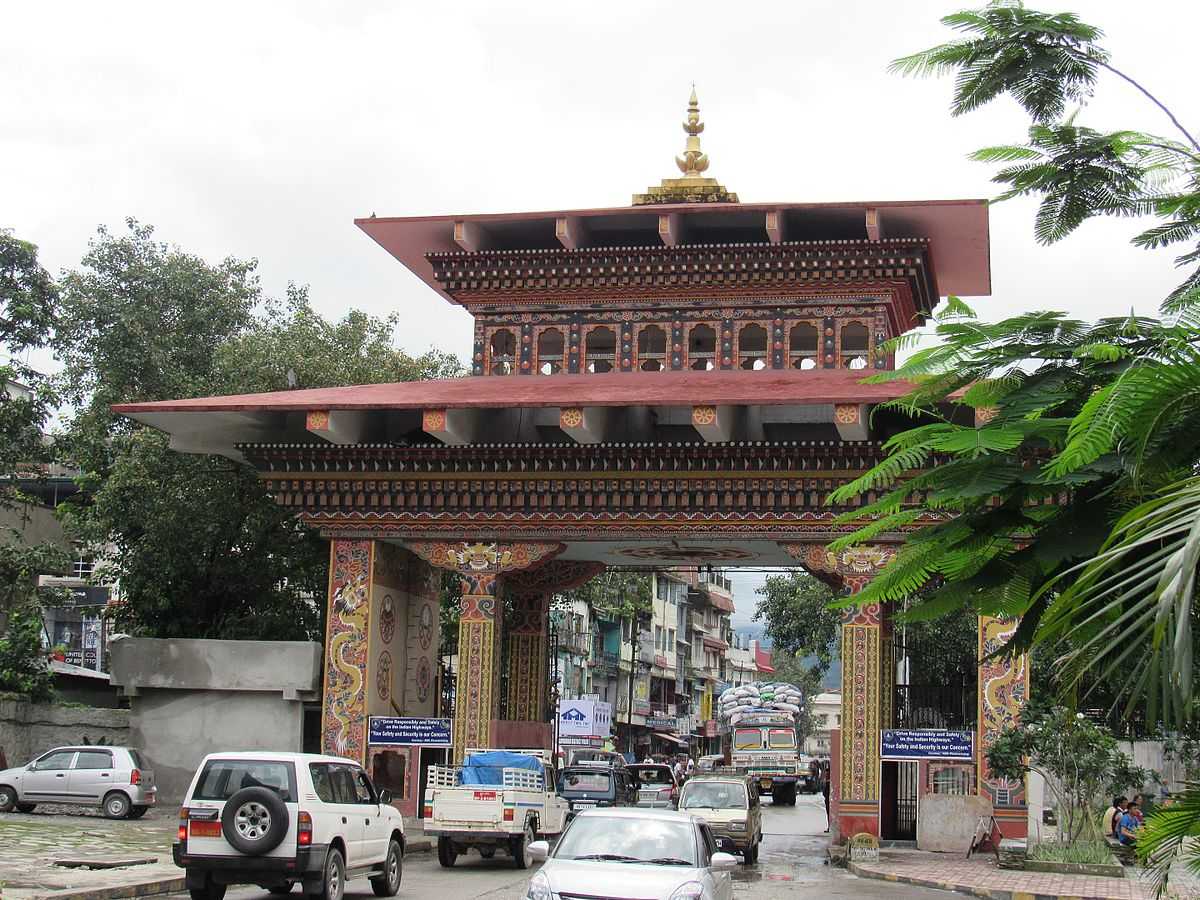
Haa Valley to PhuentsholingEnd your trip where you started. Exit from Phuentsholing!
Mode of Transport - Car
Duration - 5 Hours
Enter By Air
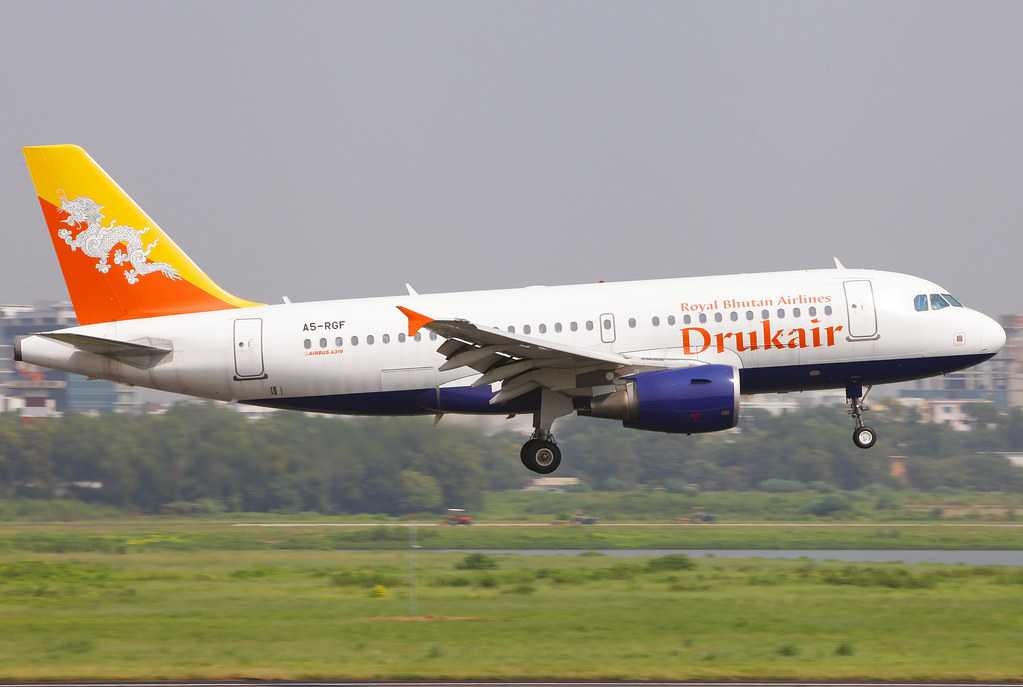
Day 1 & 2 - Paro
Day 3 - Haa Valley
Day 4 - Thimphu
Day 5 - Punakha
Day 6 - Wangdue Phodrang,
Day 7 - Back to Paro
Let us know if this itinerary suits you! Have you been to Bhutan already? What was your itinerary like? Share with us your experiences in the comments below!